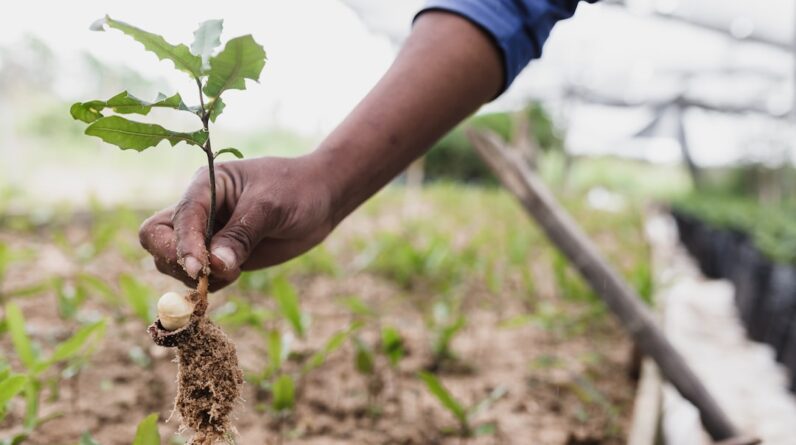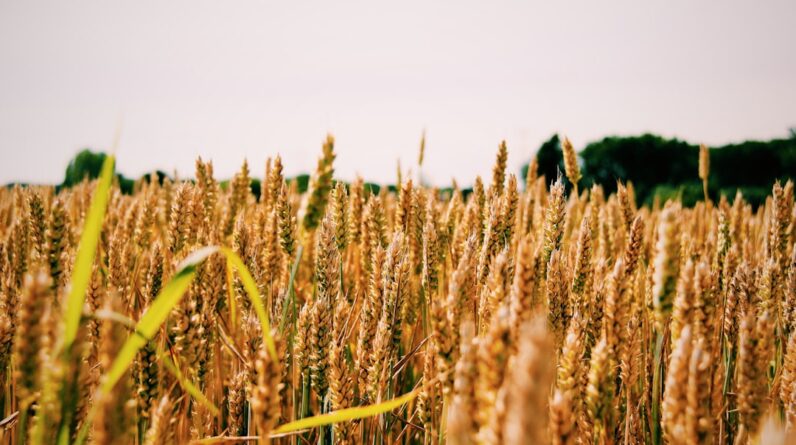
Indigenous knowledge encompasses the rich tapestry of understanding, practices, and beliefs that have been developed by Indigenous peoples over generations. This knowledge is deeply rooted in the cultural, spiritual, and historical contexts of various communities around the world. It is not merely a collection of facts; rather, it represents a holistic worldview that emphasizes the interconnectedness of all living things.
As you delve into the realm of Indigenous knowledge, you will discover that it is often passed down orally through stories, rituals, and communal practices, making it a living tradition that evolves while remaining anchored in its origins. Understanding Indigenous knowledge requires an appreciation of its unique epistemology. Unlike Western scientific paradigms that often prioritize empirical evidence and individualism, Indigenous knowledge systems emphasize relationality and community.
You may find that this perspective fosters a profound respect for nature and a recognition of the responsibilities that come with living in harmony with the environment. As climate change poses unprecedented challenges to our planet, the insights derived from Indigenous knowledge offer valuable lessons that can inform contemporary approaches to environmental stewardship and sustainability.
Key Takeaways
- Indigenous knowledge is a valuable source of wisdom and understanding that has been passed down through generations.
- Indigenous knowledge plays a crucial role in understanding and addressing the impacts of climate change.
- Traditional ecological knowledge offers valuable insights into how to adapt to and mitigate the effects of climate change.
- Indigenous practices, such as sustainable land management and traditional farming techniques, can contribute to climate change mitigation efforts.
- Indigenous perspectives emphasize the importance of environmental stewardship and the interconnectedness of all living beings.
The Role of Indigenous Knowledge in Climate Change
Indigenous knowledge plays a crucial role in addressing climate change, as it provides insights into local ecosystems and sustainable practices honed over centuries. When you consider the impacts of climate change, it becomes evident that Indigenous communities are often on the front lines, experiencing firsthand the shifts in weather patterns, biodiversity loss, and resource scarcity. Their intimate understanding of their environments equips them with unique perspectives on how to adapt to these changes.
By integrating Indigenous knowledge into climate change strategies, you can enhance resilience and foster more effective responses to environmental challenges. Moreover, Indigenous peoples have long practiced sustainable land management techniques that promote biodiversity and ecosystem health. These practices are often rooted in a deep spiritual connection to the land, which informs their stewardship approaches.
As you explore the role of Indigenous knowledge in climate change mitigation and adaptation, you will find that these traditional practices can complement modern scientific methods. By valuing and incorporating Indigenous perspectives, you can create more holistic solutions that honor both cultural heritage and ecological integrity.
Traditional Ecological Knowledge and Climate Change Adaptation

Traditional Ecological Knowledge (TEK) is a subset of Indigenous knowledge that specifically focuses on the relationships between people and their environments. TEK encompasses a wealth of information about local flora and fauna, seasonal cycles, and ecological processes. As you examine TEK in the context of climate change adaptation, you will discover that it offers practical strategies for coping with environmental shifts.
For instance, Indigenous communities often possess detailed knowledge about which crops are best suited for changing climatic conditions or how to manage water resources sustainably during droughts. In many cases, TEK has been instrumental in developing adaptive strategies that enhance community resilience. You may find that Indigenous peoples have long utilized techniques such as controlled burns to manage landscapes and promote biodiversity.
These practices not only mitigate the impacts of climate change but also foster a sense of agency within communities as they navigate uncertain futures. By recognizing the value of TEK, you can support efforts to integrate these traditional practices into broader climate adaptation frameworks.
Indigenous Practices for Mitigating Climate Change
Indigenous practices for mitigating climate change are diverse and deeply rooted in cultural traditions. As you explore these practices, you will encounter various methods that promote sustainability and environmental health. For example, many Indigenous communities engage in agroecological farming techniques that prioritize biodiversity and soil health.
These methods often involve polycultures—growing multiple crops together—which can enhance resilience against pests and diseases while reducing reliance on chemical inputs. Additionally, Indigenous peoples have long been stewards of forests and waterways, employing sustainable harvesting techniques that ensure the longevity of these vital ecosystems. You may find that practices such as rotational hunting and fishing allow populations to recover while maintaining food security for communities.
By embracing these time-tested methods, you can contribute to a more sustainable future that respects both cultural heritage and ecological balance.
Indigenous Perspectives on Environmental Stewardship
When you consider Indigenous perspectives on environmental stewardship, it becomes clear that these views are often grounded in a profound respect for nature. Many Indigenous cultures view the land as a living entity with which they share a reciprocal relationship. This perspective fosters a sense of responsibility to care for the environment, as it is seen not just as a resource but as a vital part of their identity and existence.
As you engage with these perspectives, you may find that they challenge conventional notions of ownership and exploitation. Furthermore, Indigenous stewardship practices often emphasize community involvement and collective decision-making. You might observe that these approaches prioritize the well-being of future generations, reflecting a long-term vision for sustainability.
By integrating Indigenous perspectives into environmental policies and practices, you can help create a more inclusive framework that honors diverse worldviews while addressing pressing ecological challenges.
Challenges and Opportunities for Integrating Indigenous Knowledge into Climate Change Strategies

While there are significant opportunities for integrating Indigenous knowledge into climate change strategies, several challenges persist. One major hurdle is the historical marginalization of Indigenous voices in decision-making processes related to environmental management. As you reflect on this issue, it becomes evident that overcoming systemic barriers is essential for fostering meaningful collaboration between Indigenous communities and policymakers.
Ensuring that Indigenous peoples have a seat at the table is crucial for developing effective climate solutions that respect their rights and knowledge. Another challenge lies in the need for mutual understanding between Indigenous knowledge systems and Western scientific approaches. You may find that bridging these two worlds requires open dialogue and a willingness to learn from one another.
By fostering partnerships based on respect and reciprocity, you can create opportunities for co-learning that enrich both scientific research and traditional practices. Embracing this collaborative spirit can lead to innovative solutions that address climate change while honoring the wisdom of Indigenous peoples.
Examples of Successful Indigenous-led Climate Change Initiatives
Across the globe, numerous Indigenous-led initiatives demonstrate the power of traditional knowledge in combating climate change. For instance, in Canada, the Haida Nation has implemented sustainable forestry practices that prioritize ecological health while providing economic benefits to their community. By utilizing their deep understanding of local ecosystems, they have successfully managed their forests in ways that enhance biodiversity and mitigate carbon emissions.
In Australia, Indigenous fire management practices have gained recognition for their effectiveness in reducing wildfire risks while promoting healthy landscapes. You may find that these controlled burns not only protect communities but also restore ecosystems that have been disrupted by invasive species or climate change impacts. These examples illustrate how Indigenous leadership can drive meaningful climate action while preserving cultural heritage and fostering resilience.
The Importance of Respecting and Upholding Indigenous Rights in Climate Change Action
As you consider the role of Indigenous knowledge in climate change action, it is essential to recognize the importance of respecting and upholding Indigenous rights. This includes acknowledging their sovereignty over traditional lands and resources as well as their right to self-determination in decision-making processes. When you support initiatives that prioritize Indigenous rights, you contribute to a more just and equitable approach to addressing climate change.
Furthermore, respecting Indigenous rights fosters trust and collaboration between communities and external stakeholders. You may find that when Indigenous peoples are empowered to lead climate initiatives, they are more likely to engage actively in conservation efforts and sustainable practices. By championing Indigenous rights within climate action frameworks, you can help create pathways for meaningful partnerships that honor both cultural heritage and ecological integrity.
In conclusion, integrating Indigenous knowledge into climate change strategies offers invaluable insights for building resilience and fostering sustainability. By recognizing the depth of traditional ecological knowledge and respecting Indigenous rights, you can contribute to a more inclusive approach to environmental stewardship that honors diverse perspectives while addressing pressing global challenges.
In a related article on livelifewithacause.org, the benefits of planting trees for climate change are explored in depth. The article discusses how trees play a crucial role in combating climate change by absorbing carbon dioxide and releasing oxygen, as well as providing habitat for wildlife and helping to prevent soil erosion. This article further emphasizes the importance of incorporating Indigenous knowledge into environmental conservation efforts to maximize the positive impact on our planet.
FAQs
What is Indigenous knowledge?
Indigenous knowledge refers to the traditional knowledge and practices of indigenous communities that have been developed and passed down through generations. This knowledge encompasses a deep understanding of the natural world, including ecosystems, weather patterns, and sustainable resource management.
How can Indigenous knowledge help us fight climate change?
Indigenous knowledge offers valuable insights and solutions for addressing climate change. Indigenous communities have developed sustainable land management practices, conservation techniques, and adaptation strategies that can help mitigate the impacts of climate change and protect ecosystems.
What are some examples of Indigenous knowledge contributing to climate change solutions?
Examples of Indigenous knowledge contributing to climate change solutions include traditional agricultural practices that promote soil health and resilience, indigenous forest management techniques that support biodiversity and carbon sequestration, and traditional ecological knowledge that informs climate adaptation strategies.
Why is it important to incorporate Indigenous knowledge into climate change initiatives?
Incorporating Indigenous knowledge into climate change initiatives is important because it recognizes the value of traditional knowledge systems and promotes cultural diversity. Indigenous communities have a unique perspective on environmental stewardship and resilience, and their knowledge can complement and enhance mainstream climate change efforts.
What are some challenges in integrating Indigenous knowledge into climate change policies?
Challenges in integrating Indigenous knowledge into climate change policies include issues of cultural appropriation, lack of recognition and respect for indigenous rights and sovereignty, and power imbalances in decision-making processes. It is important to engage with indigenous communities in a respectful and collaborative manner to address these challenges.





